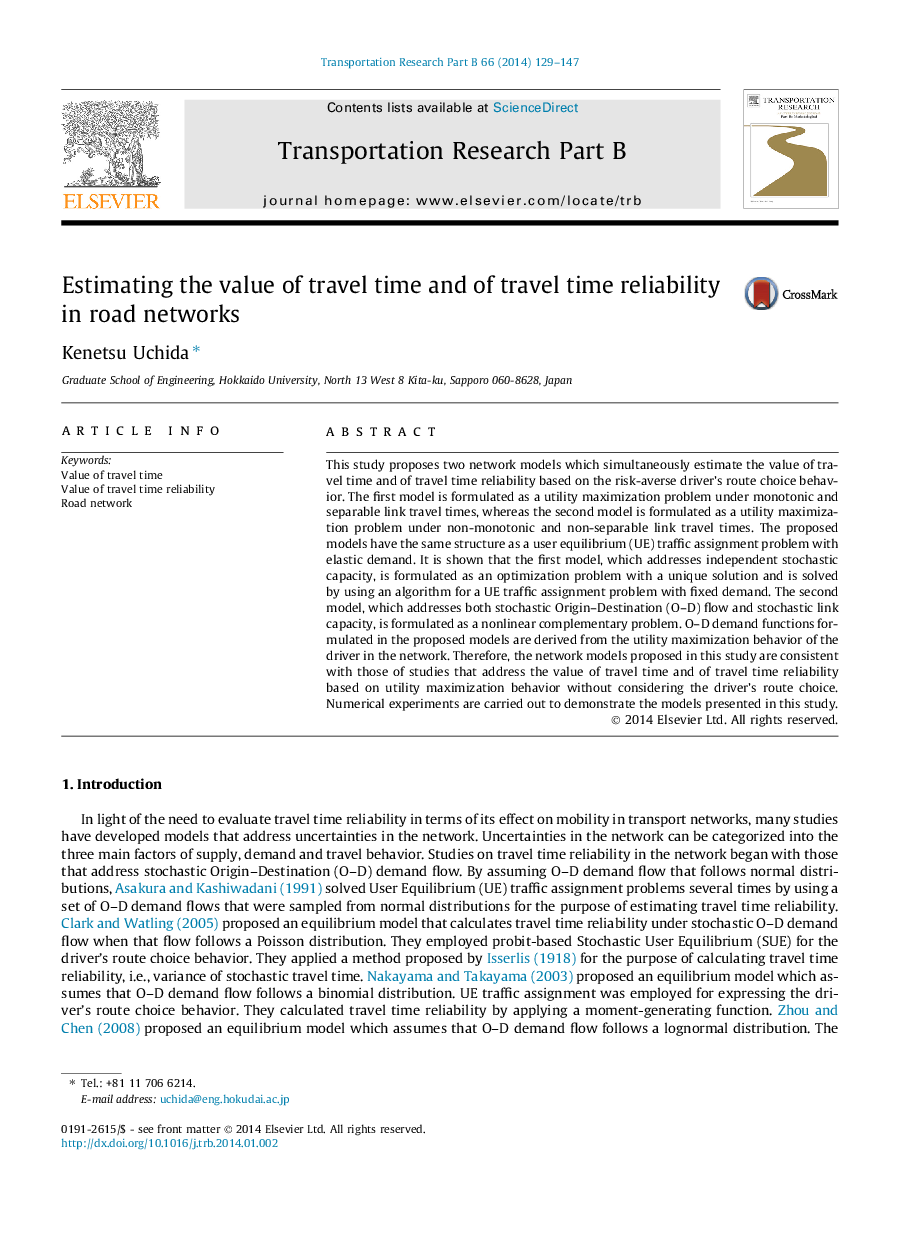| Article ID | Journal | Published Year | Pages | File Type |
|---|---|---|---|---|
| 1131906 | Transportation Research Part B: Methodological | 2014 | 19 Pages |
•We developed two models which estimate values of travel time and travel time reliability in road networks.•The models developed in this study have the same structure as user equilibrium traffic assignment problem.•The values of travel time and travel time reliability increase as congestion level in network increases.
This study proposes two network models which simultaneously estimate the value of travel time and of travel time reliability based on the risk-averse driver’s route choice behavior. The first model is formulated as a utility maximization problem under monotonic and separable link travel times, whereas the second model is formulated as a utility maximization problem under non-monotonic and non-separable link travel times. The proposed models have the same structure as a user equilibrium (UE) traffic assignment problem with elastic demand. It is shown that the first model, which addresses independent stochastic capacity, is formulated as an optimization problem with a unique solution and is solved by using an algorithm for a UE traffic assignment problem with fixed demand. The second model, which addresses both stochastic Origin–Destination (O–D) flow and stochastic link capacity, is formulated as a nonlinear complementary problem. O–D demand functions formulated in the proposed models are derived from the utility maximization behavior of the driver in the network. Therefore, the network models proposed in this study are consistent with those of studies that address the value of travel time and of travel time reliability based on utility maximization behavior without considering the driver’s route choice. Numerical experiments are carried out to demonstrate the models presented in this study.
